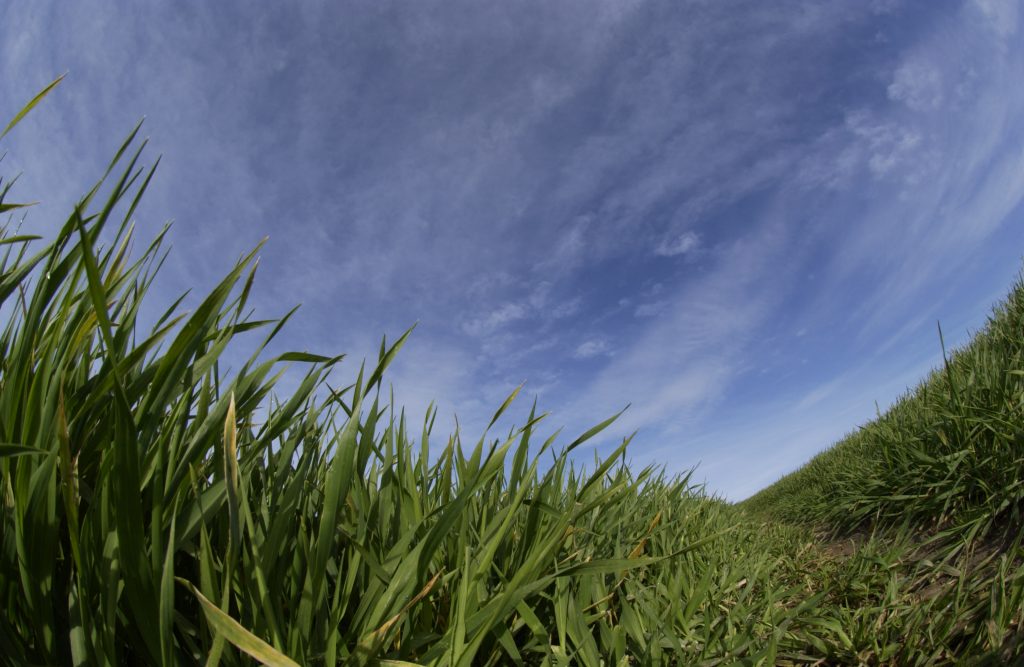Striking the Right Balance with Winter Cereal Crops
16th October 2020
Across the country 2020 yields suffered due to various weather issues, so many farmers will be keen to get their winter crops off to an early start in an effort to secure better yields next year. Consequently, many fields have already been sown with winter cereal crops.
Across the country 2020 yields suffered due to various weather issues, so many farmers will be keen to get their winter crops off to an early start in an effort to secure better yields next year. Consequently, many fields have already been sown with winter cereal crops.
Farmers will hope that the extra time in the soil will lead to firmer establishment and a better root system will, in turn, lead to increased biomass above ground.
Of course if it were that easy we’d always do it. The payoff for sowing crops early is the drain on available nutrient resources in the soil. As nutrients disappear, the crop’s growth will slow down and ultimately this will effect crop yield.
4 Steps to Assuring Healthy Yields
Unfortunately none of us can control the weather so circumnavigating the effects of inclement weather will always be a hazard of the job for farmers, but by focusing on those things we can control, farmers can still maximise the potential for healthy yields.
1. Know what your crop needs to flourish
Knowing what a crop needs and understanding its potential is crucial to ensuring that input expenses don’t tip the balance towards a loss. With winter cereal crops, we know the essential micronutrients are manganese, magnesium, copper and zinc. A good supply of these nutrients throughout the growing season will help to maximise potential yields.
2020’s world record wheat crop came from Eric Watson’s farm in New Zealand who achieved a massive 17.398t/ha. Part of his winning formula was to apply essential micronutrients, using YaraVita Gramitrel to assure the supply of manganese, magnesium, copper and zinc throughout the growing season.
2. Use data to inform your decisions
By testing soil throughout the year and over time farmers can build up a great picture of nutrient availability. Looking into local nutrient trends will also help farmers make more confident decisions. Leaf analysis will identify in-field crop deficiencies, though once a deficiency is evident, it’s almost too late to fix it – tissue test routinely at the start of spring or if not possible use previous years’ data to prevent a deficiency from occurring. For example, 2020 data highlighted that crops were between 50-73% deficient in either magnesium, manganese, copper or zinc – therefore many will be deficient in all of them.
3. Identify the limiting factor
Combining an understanding of what a healthy crop needs to flourish with soil and leaf deficiency data will help you identify the limiting factor. Liebig’s law of the minimum states that crop growth is effected by the most scare resource.
4. Efficiently apply relevant micronutrients
The cost of applying micronutrients does not just relate to buying the product – it also needs to consider how expensive it is to apply it and what cost does that have to things such as soil compaction. Reducing passes by mixing products can create essential efficiencies and reduce the impact on your soil health.
Ultimately, if your data has shown previous deficiencies in any of the main micronutrients needed by a winter cereal crop and you’ve drilled early this year, it would be a wise decision to apply a multi-nutrient product such as YaraVita Gramitrel – one pass, which can be done at the same time as your pesticide application, should be enough to apply all the necessary micronutrients to keep your winter wheat flourishing into the spring.
To find out more about crop specific micronutrient mixtures for cereals visit https://www.yara.co.uk/grow-the-future/cereal-micronutrients/

